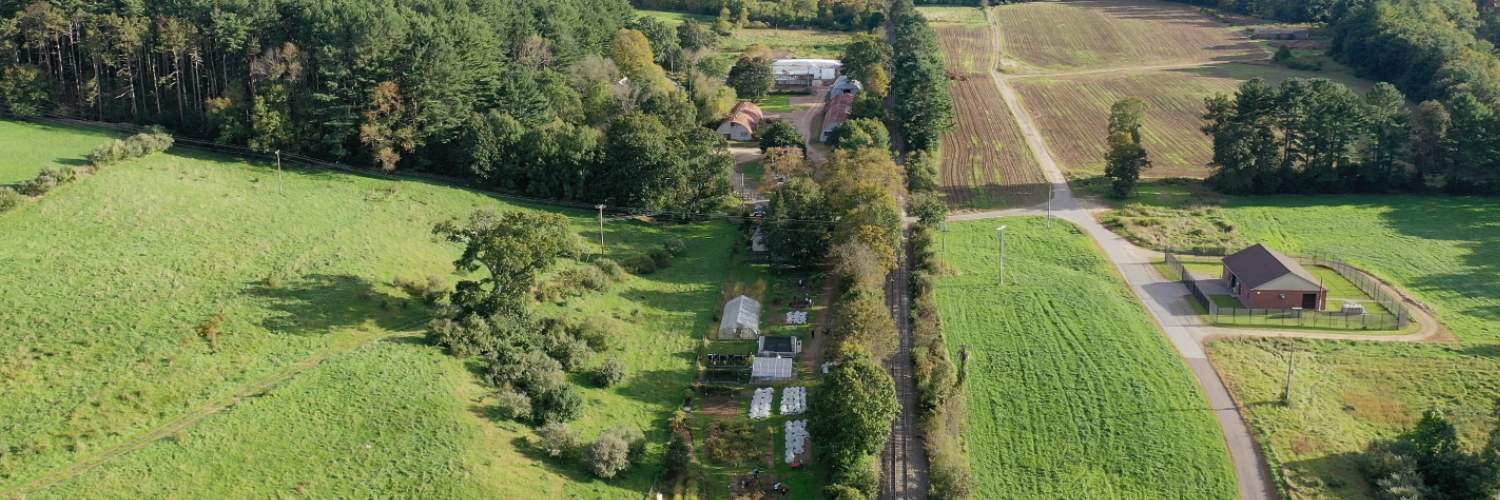
Beekeeping
The honeybees at Spring Valley Student Farm are owned and managed in collaboration with the UConn Beekeeping Club. The farm is home to three to six full-sized beehives annually. Hive boxes are visited once or twice each week for routine inspection and maintenance.
'Bee' Part of the Action!
No previous experience is necessary to get involved with beekeeping at Spring Valley Student Farm!
UConn Beekeeping Club holds regular meetings and trips to the hives during the academic year, as well as summer hive care. All club events are beginner-friendly and appropriate safety equipment is provided. Please wear closed-toed shoes and long pants to hive visits and wear a baseball cap if possible.
To get involved, please visit the club’s UConntact site to send a membership request, and follow the Beekeeping Club on Instagram.
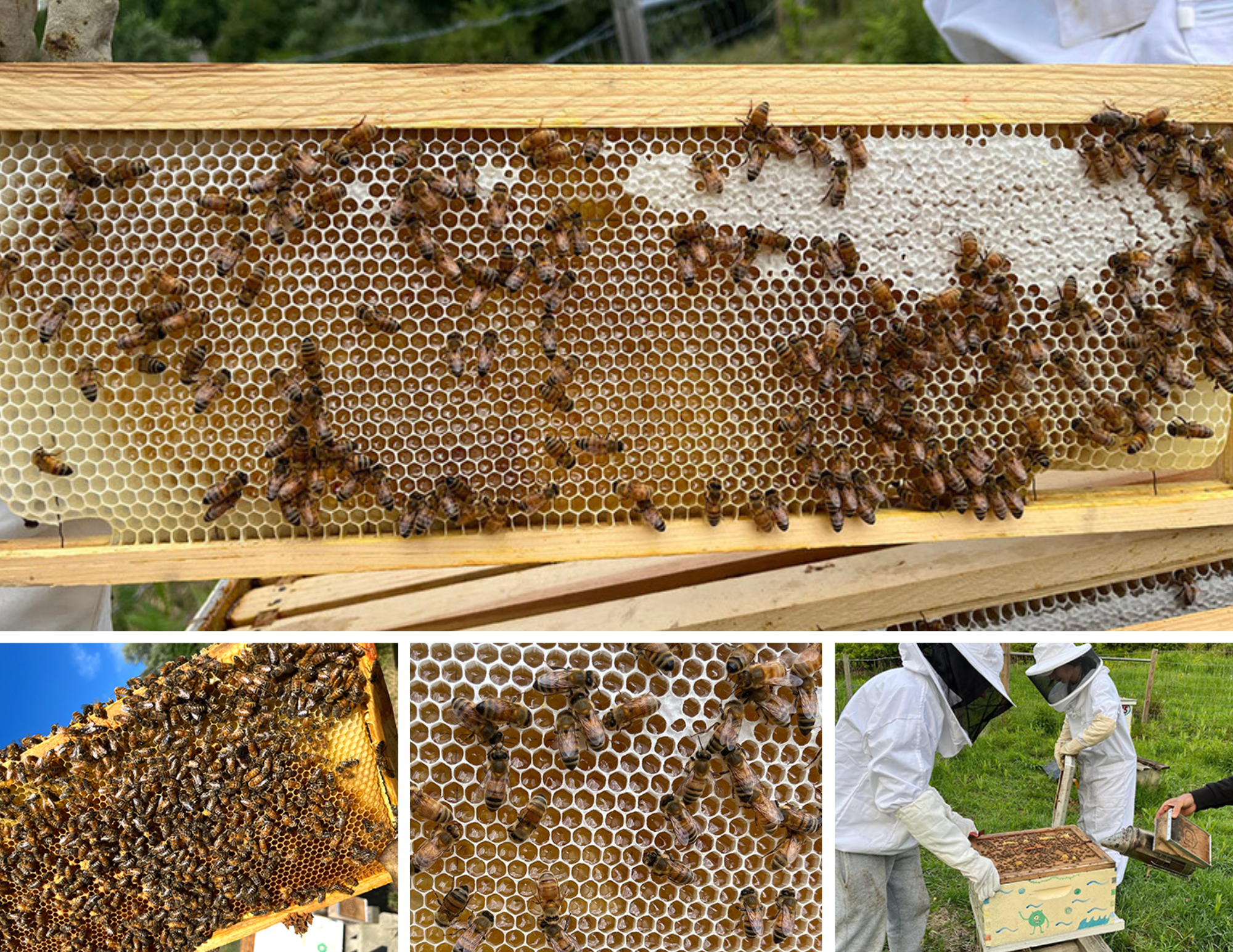
EcoGarden
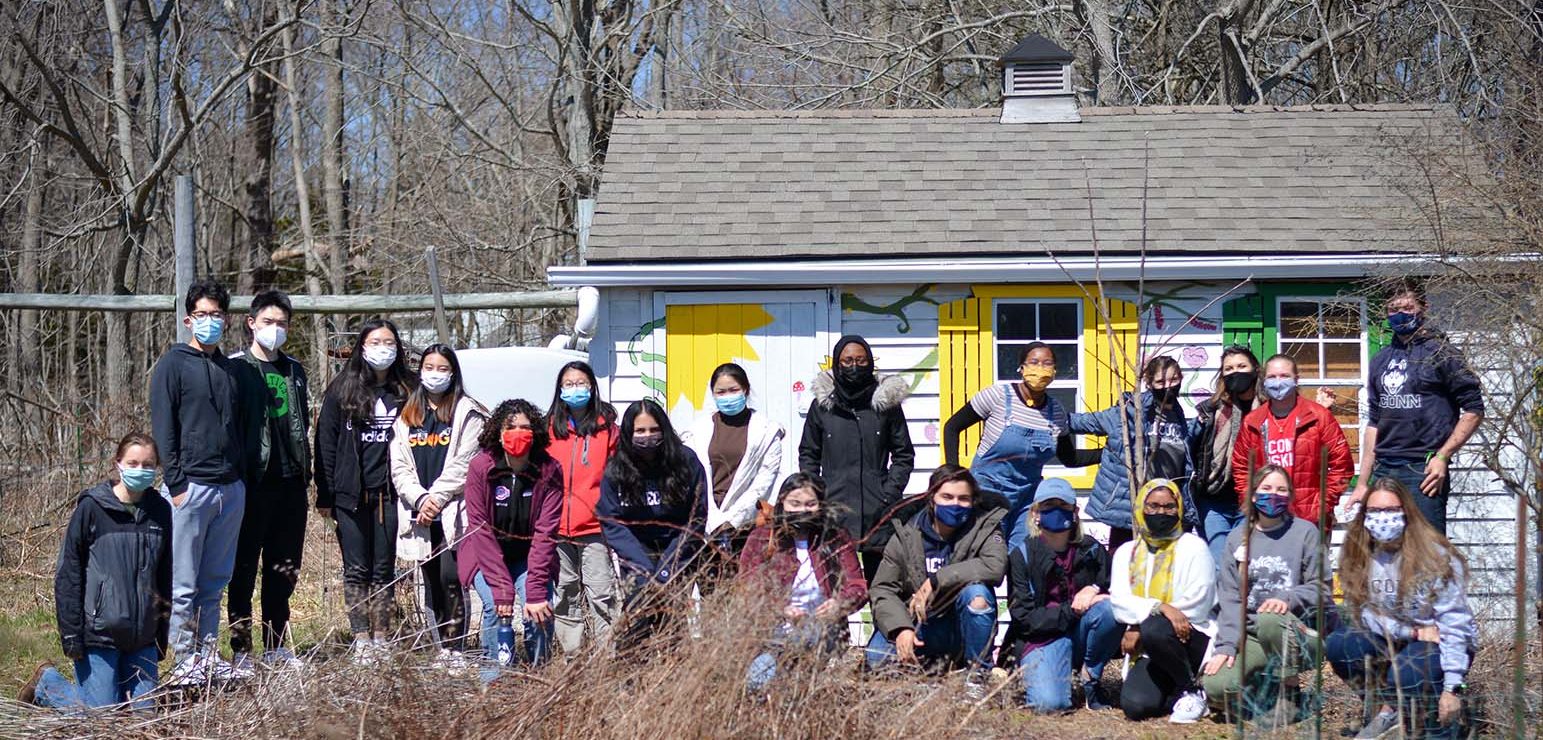
EcoGarden club is a satellite location of Spring Valley Student Farm, focused mainly on permaculture and edible perennial plantings, including blackberries, raspberries, grapes, aronia berries, hazelnuts, Asian pears, elderberries, horseradish, and more. EcoGarden is located within the Mansfield Community Gardens, just off campus on Route 195, north of Mansfield Supply.
In 2023, we received a Social and Environmental Sustainability Small Grant from UConn’s Institute of the Environment and Office of Sustainability.
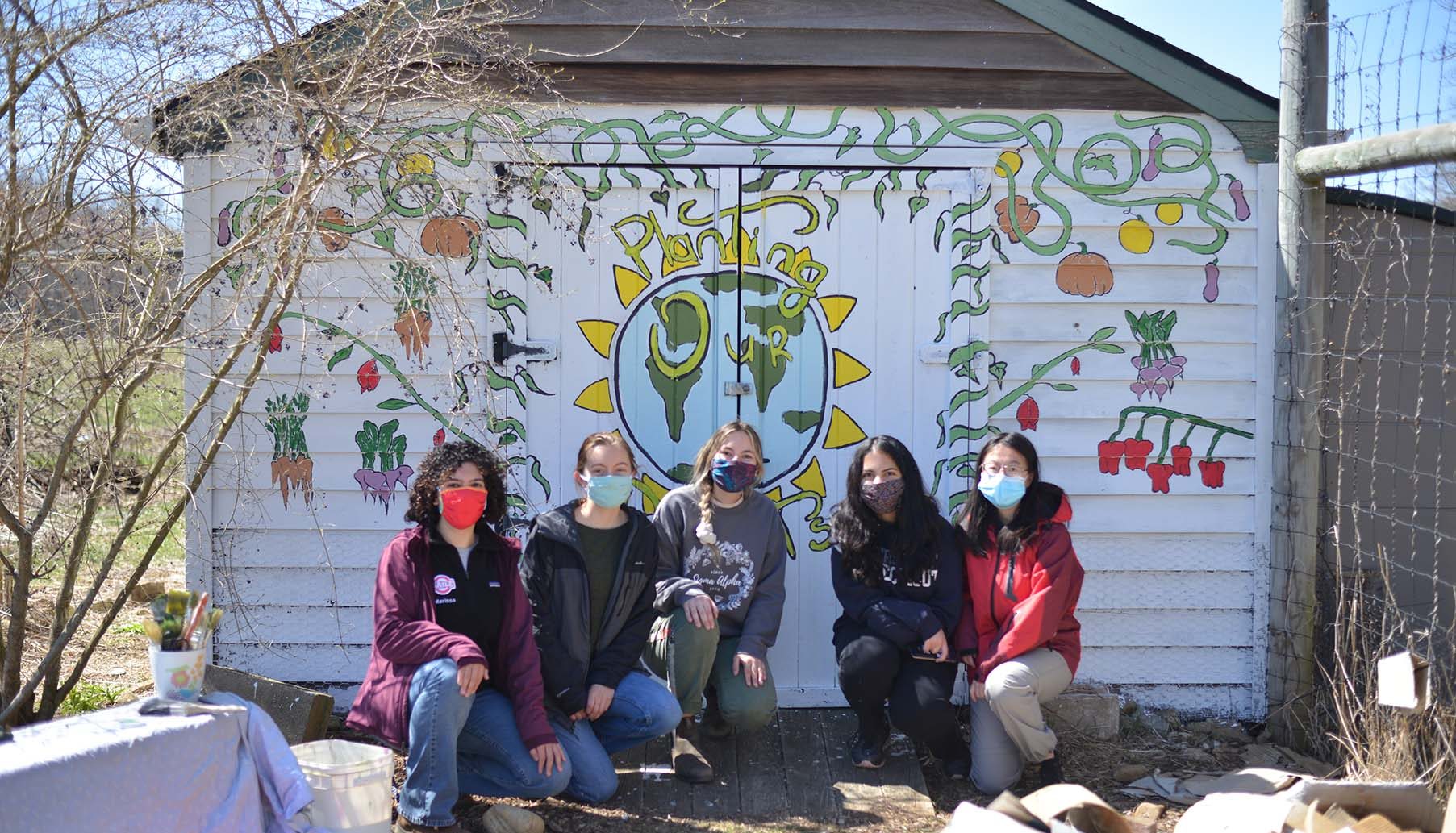
Edible Forest
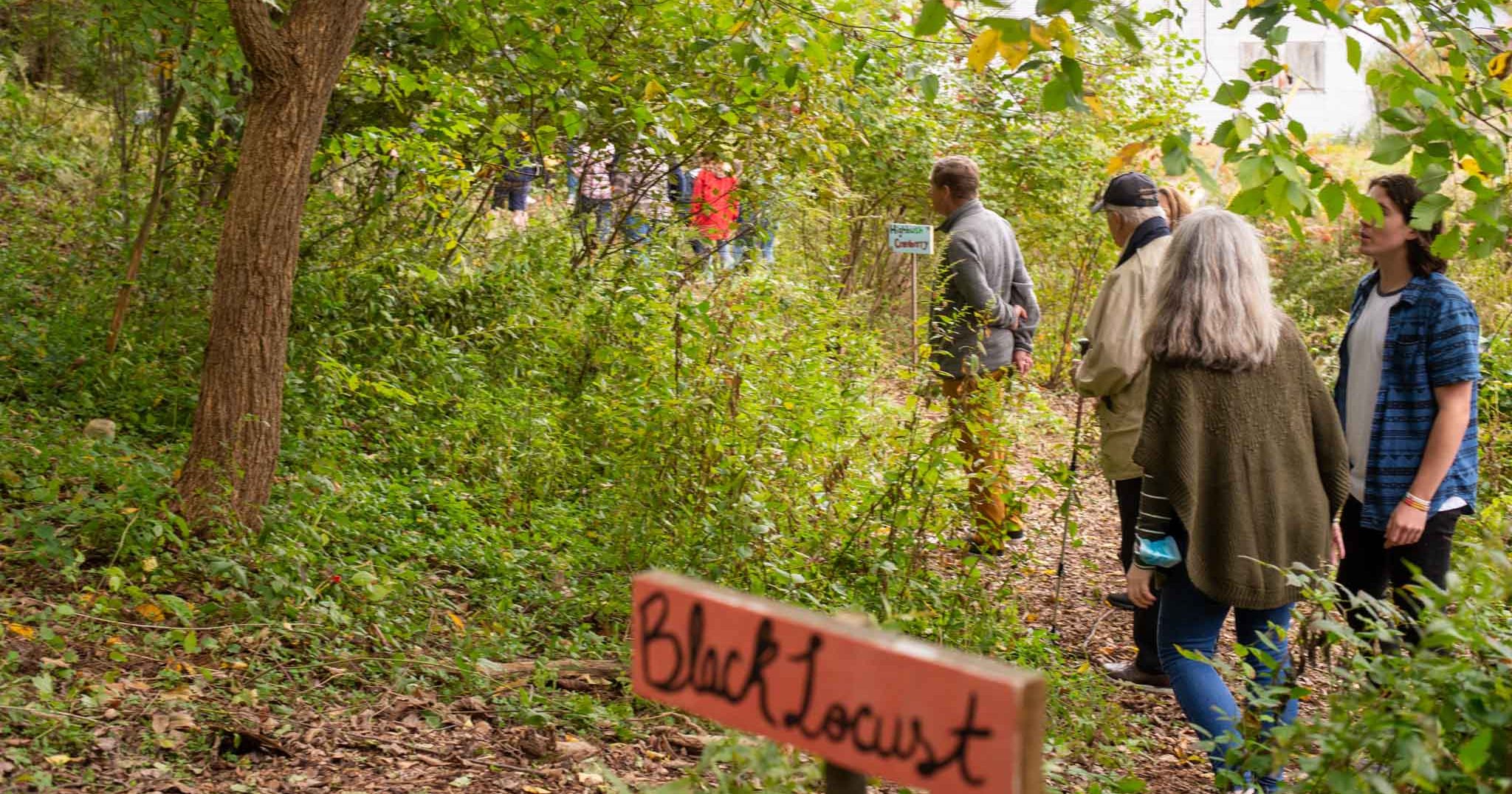
SVSF students began the Edible Forest Garden in 2012 as an initiative to practice lower-input food cultivation through the ancient practice of food forest gardening and permaculture.
Permaculture presents a holistic approach to agricultural land use and design that creates sustainable human habitat and provisions while also improving ecological health. Permaculture aims to replenish and regenerate life while being increasingly productive.
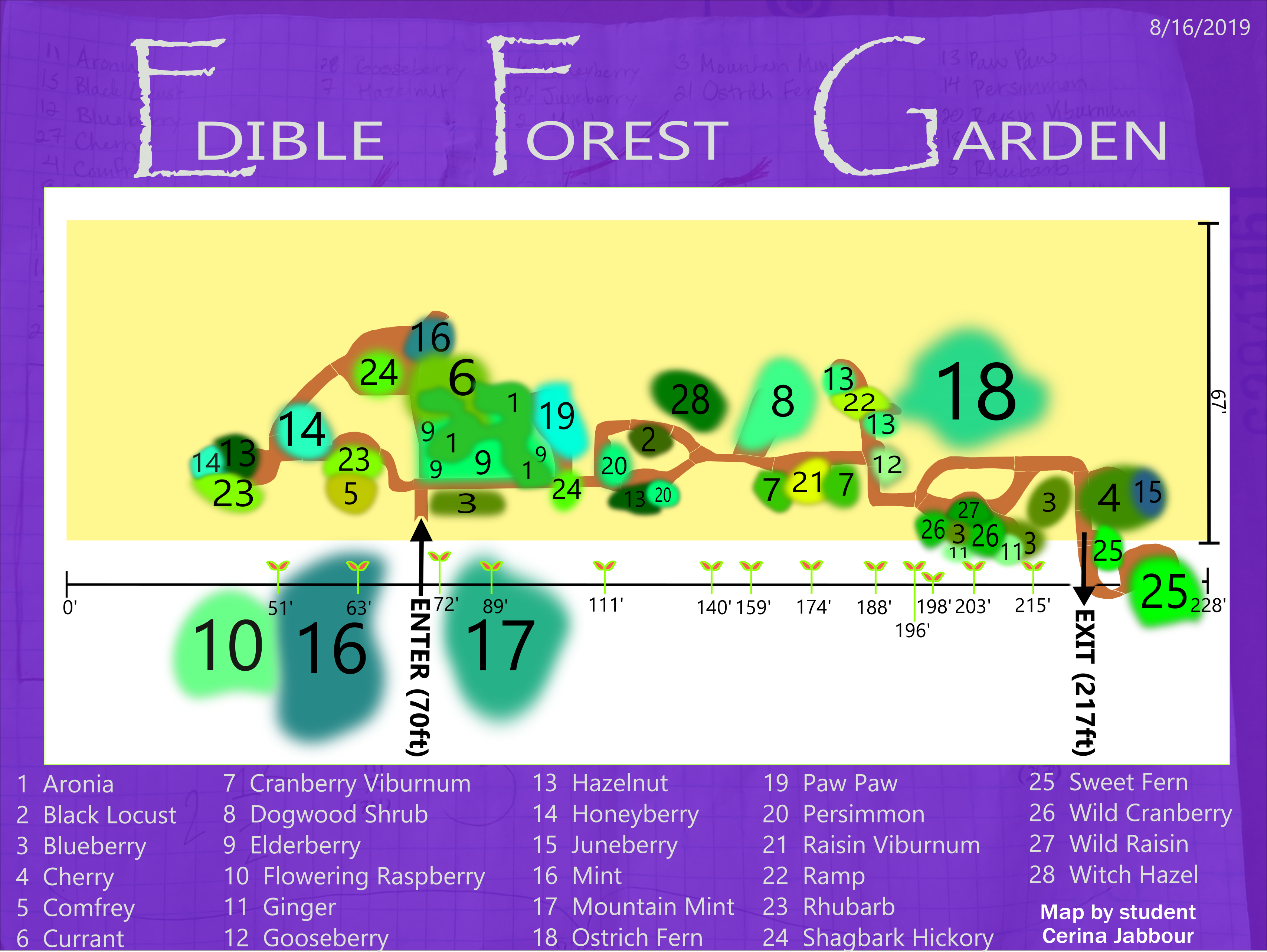
Net-Zero Energy
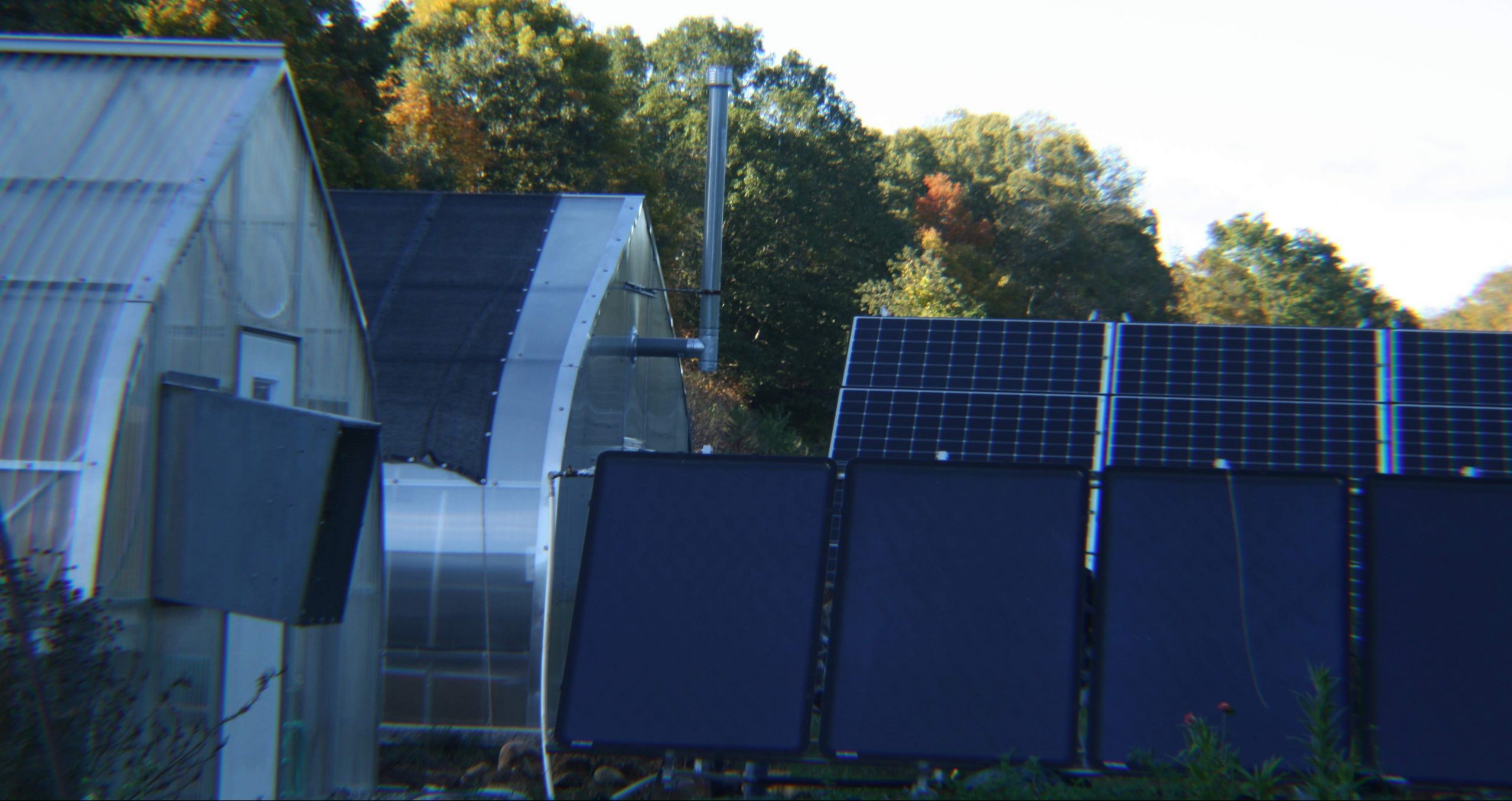
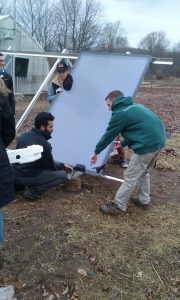 To further our sustainability education goals, we aim to become a net-zero energy farm that serves as a model for small farms across the state. We utilize Solar Thermal energy to heat our seeding greenhouse, and plan to connect our Solar Photovoltaic array to the grid to generate electricity on-farm in the future.
To further our sustainability education goals, we aim to become a net-zero energy farm that serves as a model for small farms across the state. We utilize Solar Thermal energy to heat our seeding greenhouse, and plan to connect our Solar Photovoltaic array to the grid to generate electricity on-farm in the future.
Many thanks to the many students, faculty, and staff who have contributed to this project, and special thanks for funding from the Provost Academic Plan Grant (2017) and Social and Environmental Sustainability Small Grant from the Institute of the Environment (2022).